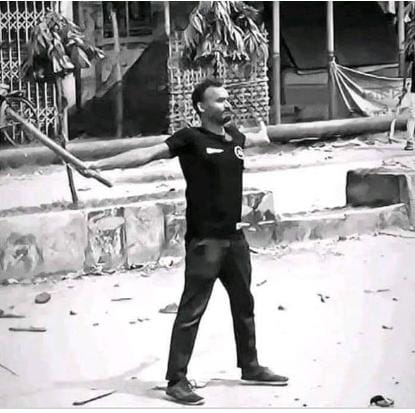
In a dramatic escalation of tensions, student protests have erupted across Bangladesh, centered on the controversial issue of the “Kota” system in educational institutions. What began as peaceful demonstrations quickly escalated into a nationwide movement marked by tragedy and widespread disruption.
Escalation and Blockades
The protests reached a critical juncture today as student leaders announced a blockade affecting major cities nationwide. The call for action stemmed from deep-seated grievances over the Kota system, which many students argue places undue stress and financial burden on them. Their demands for reform have resonated widely among youth across the country.
Tragic Losses and Police Response
However, the protests turned deadly when clashes with law enforcement resulted in the tragic deaths of six students and left over 300 injured. Reports indicate that police fired live rounds into crowds, a move that has sparked outrage and condemnation both domestically and internationally. Among the casualties was Abu Sahid, a student of English Honours, whose death has galvanized further protests and reinforced the resolve of demonstrators.
Support and Solidarity
In a sign of solidarity, even rickshaw drivers, a vital segment of urban transport, have joined the protesters. Their participation underscores the broad-based frustration with the current educational system, with drivers questioning the future prospects of their children after completing their studies.
Disruption of Academic Institutions
The protests have led to the closure of major educational institutions such as Dhaka University, Jahangirnagar University, and Chittagong University. Additionally, key transportation networks, including metro train services, have been disrupted, severely impacting daily life across urban centers.
Political Dimensions
Amid the chaos, reports have emerged of clashes between student protesters and affiliates of political parties like BNP and Islamic student organizations. This suggests a complex landscape where various political interests intersect with the grassroots movement, potentially shaping its trajectory and outcomes.
Calls for Resolution
As the situation continues to unfold, there are mounting calls for dialogue and a peaceful resolution to the crisis. International observers and human rights organizations have urged restraint and called for an impartial investigation into the use of force by authorities.
Looking Ahead
The student protests in Bangladesh represent a critical moment in the nation’s socio-political landscape. They highlight deep-seated grievances among the youth and the broader population regarding the educational system’s fairness and accessibility. The path forward remains uncertain, yet the determination of the students and their supporters underscores a fervent desire for change and justice.
As Bangladesh navigates through these turbulent times, the outcomes of these protests are likely to shape the future course of educational policies and societal norms, making it a pivotal moment in the country’s history.
Read more: https://thelocaljournalist.com/unrest-in-bangladesh-students-take-to-the-streets/
